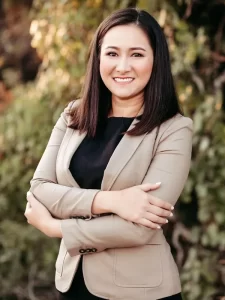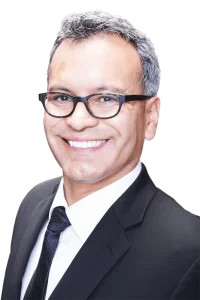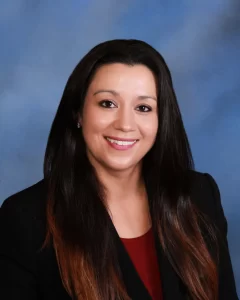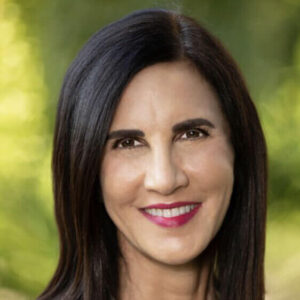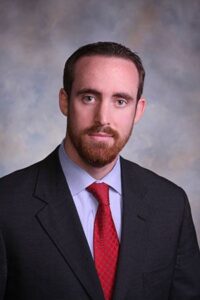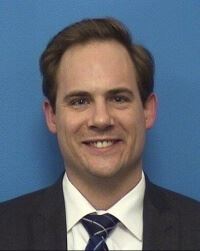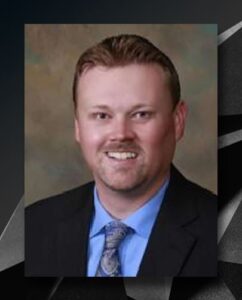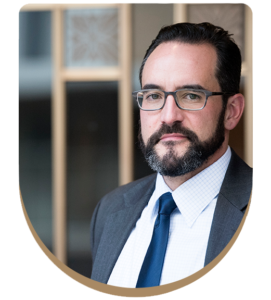Best Criminal Lawyer in San Jose
Trang Do, Esq.
Criminal Lawyer
Ms. Do was raised in the Bay Area and received her Bachelor of Science in Finance from San Jose State University. Ms. Do earned her law degree from Lincoln Law School of San Jose. During Law school, Ms. Do was the recipient of a number of awards, including being awarded Witkins Awards in Contracts, Constitutional Law, and Best Written Brief in Moot Court. Additionally Ms. Do was also on the Dean Honor’s List and a Chief Editor Assistant in Law Review.
Ms. Do was a paralegal for a Personal Injury Law Firm for more than six years before she joined a Bankruptcy Law Firm. She has more than a decade of experience in dealing with personal injury claims and bankruptcy filings.
Ms. Do’s practice is dedicated to representing victims who have been injured at the hands of others and clients who are struggling with debts. She is experienced in all aspects of civil litigation and bankruptcy court. Unlike some attorneys who refuse to take a case to trial, Ms. Do has the confidence to present your case to the jury. Ms. Do takes pride in providing outstanding service and achieving the best possible outcome for all of her clients.
With regard to Bankruptcy, Ms. Do understands that financial issues can be stressful, frustrating, and overwhelming. Ms. Do can give you the respect you deserve and the breathing room you need to make a fresh start. She will be by your side to walk you through the process and guide you each step of the way.
Javier Rios
Criminal Lawyer
Javier Rios is an award winning criminal defense lawyer from San Jose, California. He graduated from UC Berkeley and one of the most prestigious law schools in the country, the University of Michigan Law School. He has dedicated more than 25 years to defending people accused of crime. He is a seasoned trial attorney, not a paper shuffler. He has successfully represented people in many trials, from DUI to murder. Some of his work has been described on the front page of the San Jose Mercury News as well described in other newspapers and news websites across the state and across the country. He fights hard to defend his clients and protect their rights in a court system that often wants to just roll over people.
If you have a Santa Clara County case, you may want an attorney who knows the ins and outs of a Santa Clara County courtroom. Mr. Rios lives and works in San Jose and has tried cases in all the Santa Clara County courthouses, from Morgan Hill to the courthouse in Palo Alto. He has also known many of the Santa Clara County judges and Deputy District Attorneys for years and years.
Mr. Rios is accessible to each client, offering answers and information to make him or her and his or her loved ones feel confident that the case is in capable hands. He speaks frankly, no gimmicks, and tells you straight up where your case stands and the options available to you. Should the case end up in trial, Mr. Rios will be ready to defend you.
Shari Sukaram
Criminal Lawyer
I decided to work in litigation as a young girl. The oldest of four children born to a teenage mother and immigrant father, I quickly learned responsibility and the need to be a leader and an advocate for others. From a young age, many close to me were entangled in the legal system. These experiences led me to become a defense attorney, dedicating my career to protecting and fighting for the rights of others.
Prior to establishing Ahmed & Sukaram, DUI and Criminal Defense Attorneys, I graduated from the University of California San Diego with a B.A. in Political Science and a Minor in Psychology. I received my J.D. from the University of California, Hastings College of the Law in 2007. I served as a certified legal intern for both the District Attorney’s Office of Alameda County and the District Attorney’s Office for Santa Clara County and worked as an intern for the San Diego Unified School District Office of the General Counsel.
Currently, my goal is not only to be a zealous advocate, but one who is sympathetic and understanding as to the emotional and mental impacts that the legal process can have on you and your loved ones. I defend adult criminal cases and also work in assisting juveniles with delinquency cases. I am a strong believer that all individuals, even those who make mistakes, have a golden opportunity to achieve their dreams if they are given a chance, shown that they should believe in themselves and put on the proper path.
When I am not hard at work defending my clients, you will find me trying to be the best mom and wife in the Universe, having great adventures, at the beach, traveling, cooking, listening to music, singing my heart out, watching movies, and hanging out with my family and pets.
James Reilly
Criminal Lawyer
Stephanie Rickard is an experienced trial attorney whose primary focus is client satisfaction. As a former prosecutor for the Santa Clara County District Attorney’s Office, she has represented both individuals and major national corporations in both criminal and civil cases.
Ms. Rickard has a reputation for being genuinely concerned about her clients. Her professional dedication and personal involvement in each case ensure a level of responsiveness and integrity lacking in most larger firms.
Ms. Rickard received her law degree from Santa Clara University School of Law and her undergraduate degree from San Jose State University. She is a member of the American Bar Association, the State Bar of California, the Santa Clara County Bar Association, the California Deuce Defenders, the National Legal Aid and Defenders Association, and California Attorneys for Criminal Justice.
She is admitted to practice in all courts of the state of California and Federal Court and represents clients in Santa Clara, Alameda, San Mateo, San Francisco, Marin, Contra Costa, Santa Cruz, San Benito, and Monterey counties. She also represents many clients who are residents of other states and countries and has interpreters available at no additional fee for most languages.
Brendan Barrett
Criminal Lawyer
Effective criminal defense is no simple task. It is highly involved and requires dedication beyond that of any other practice area. It demands the most of its lawyers as they must be knowledgeable about investigative research, well-versed in multiple legal disciplines, and quick on their feet in open court. Defense work requires that attorneys be calming, understanding, and compassionate to their clients while simultaneously remaining aggressive within a system designed to generate convictions.
Brendan Barrett has the the skills of a research attorney and the prowess of a trial attorney that puts his client’s cases in the best position for success.
Combining great customer service, a solid knowledge of the legal landscape, and a personable nature that you don’t find in your average lawyer–Brendan enjoys what he does and it shows. In the past years, Brendan has received seven “Super-Lawyer Awards” for Excellence in Practice, the Pro Bono Publico Award, the Public Interest Clearinghouse Award, and “best 40 under 40 attorneys” award three times. Because of his dedication to his practice, he has built trust in the San Jose and Greater Bay Area communities with clients who refer to him in glowing terms. Call or write today for your free consultation, and see what Brendan can do for you.
Adam Allen Arant
Criminal Lawyer
If you have been charged with a DUI, you need the peace of mind that comes with entrusting your future freedoms in the hands of a professional who has experience handling similar cases. Founding attorney, Adam Allen Arant, can help you move forward in life by providing you with reliable and effective representation in and out of the courtroom.
Adam Allen Arant graduated from the University of California Davis with a Bachelor’s degree in history with honors and a 3.9 cumulative GPA. While an undergrad, Attorney Arant was nominated for the Dean’s List every semester and received the History Department’s Citation for Academic Excellence. Moving on to the UC Davis School of Law, he participated in the Francis Carr Mock Trial Competition.
After earning his JD from law school, Attorney Arant was a part of Diepenbrock Harrison where he worked in civil and business litigation, labor and employment law, construction law, and environmental/land use law.
Thomas Nicholas Cvietkovich
Criminal Lawyer
San Jose criminal defense attorney Nick Cvietkovich is passionate about vigorously representing his clients. His Jesuit education instilled in him the philosophy of putting others ahead of himself. He attended Catholic schools from 1st grade through law school. He graduated from Bellarmine College Preparatory and then went on to graduate from Santa Clara University where he double-majored in English and Philosophy. He went straight into law school and graduated from Santa Clara University School of Law. While in law school Mr. Cvietkovich interned with the California Innocence Project and the Santa Clara County Public Defender’s Office where he won the first motion he ever argued.
My name is Nick Cvietkovich, and I founded this firm on a commitment to set the standard for criminal defense in the Bay Area. When you need an experienced attorney to make sure that your rights are protected, no one will fight more aggressively on your behalf than me.
I have the tools to get results and secure your justice. My firm has an extensive and intricate understanding of legal procedures, from DUIs to traffic violations to sex and drug crimes.
When you need to be sure that you are getting the very best legal representation, and not some fly-by-night attorney who is only interested in settling your case as soon as possible, trust the experts at The Law Offices of Thomas Nicholas Cvietkovich to do everything in their power to get the best possible ruling on your case.
Aaron J. Shnider
Criminal Lawyer
With over 13 years of qualified experience, Attorney Aaron J. Shnider has been handling serious criminal charges as a trial attorney. He is also the founder of the Shnider Law Firm, with himself leading the team as a trial attorney. As a teenager, he realized his passion for defending criminally accused individuals led him to become an industry-renowned attorney.
Mr. Shnider’s legal career started before college when he worked at numerous law firms. The intensity continued in law school, where he competed nationally in trial advocacy tournaments, graduated magna cum laude, and founded the Jewish Law Student’s Association. He has used his trial experience, legal know-how, and relationship-building to found and grow the Shnider Law Firm.
Attorney Aaron J. Shnider will exploit any weaknesses in the evidence against you by understanding how law enforcement and prosecutors conduct investigations, collect evidence, and approach their cases. A thorough understanding of California’s legal system can be especially beneficial when reducing or dismissing charges or obtaining favorable verdicts.
Can Domestic Violence Be Verbal? Understanding the Impact of Verbal Abuse in Domestic Violence
When most people think of domestic violence, they often imagine physical acts such as hitting, slapping, or pushing. However, domestic violence is not limited to physical abuse. It can take many forms, including emotional, psychological, financial, and verbal abuse. While physical abuse tends to leave visible scars and evidence, verbal domestic violence can be harder to recognize but just as damaging. Verbal abuse in domestic settings can strip a person of their self-esteem, confidence, and sense of safety. In this article, we will explore the concept of verbal domestic violence, its characteristics, and its profound impact on individuals.
What is Verbal Domestic Violence?
Verbal domestic violence refers to the use of words or language to exert power and control over a partner, family member, or other individual within a domestic setting. This form of abuse can manifest in various ways, including threats, insults, derogatory comments, humiliation, and constant criticism. Unlike physical abuse, verbal abuse leaves no physical marks, making it challenging for outsiders to identify or intervene. However, it can inflict deep emotional and psychological wounds that can persist for years.
At its core, verbal abuse is about control. The abuser uses words as weapons to diminish the victim’s sense of worth, instill fear, or manipulate their behavior. The damage caused by verbal abuse can be just as severe, if not more so, than physical violence. Victims of verbal abuse often experience long-term emotional consequences, including anxiety, depression, and a diminished sense of self-worth.
Forms of Verbal Domestic Violence
Verbal domestic violence can take many forms, and recognizing these behaviors is crucial in identifying the abuse. Some common examples include:
Name-Calling and Insults: An abuser may resort to calling their partner degrading names or hurling insults at them. This could range from calling them “stupid” or “worthless” to using more vile language designed to hurt. Over time, these insults chip away at the victim’s self-esteem, leaving them feeling inadequate and powerless.
Threats: Verbal threats can be explicit or implied. For example, an abuser might say, “If you leave me, I’ll ruin your life” or “You’ll regret it if you don’t do what I say.” These threats instill fear in the victim, making them feel trapped and unable to seek help.
Blaming and Accusations: In many cases, verbal abusers will deflect responsibility for their actions by blaming the victim. This might involve false accusations of infidelity, dishonesty, or other perceived wrongdoings. Over time, this can create an environment of constant suspicion and insecurity.
Gaslighting: Gaslighting is a form of psychological manipulation where the abuser makes the victim question their reality or sanity. This might involve denying things they said or did, twisting facts, or telling the victim that they are “overreacting” or “imagining things.” Gaslighting is an insidious form of verbal abuse that can leave the victim feeling confused, disoriented, and unsure of themselves.
Public Humiliation: Some verbal abusers humiliate their partners in public settings to establish dominance and control. This could involve making disparaging remarks in front of friends, family, or colleagues, embarrassing the victim and further diminishing their self-worth.
Constant Criticism: Abusers may critique every aspect of the victim’s life, from their appearance to their job performance, relationships, or parenting. This relentless criticism can make the victim feel as though they can never do anything right, creating a sense of helplessness.
The Psychological Impact of Verbal Domestic Violence
While verbal abuse doesn’t leave physical scars, its psychological effects can be severe and long-lasting. Victims of verbal domestic violence often suffer from emotional trauma that affects every aspect of their lives. Some of the common emotional and psychological effects include:
Low Self-Esteem: One of the primary goals of verbal abuse is to break down the victim’s confidence and self-worth. Over time, victims may start to believe the negative things said about them, leading to a deep sense of inadequacy and self-loathing.
Depression and Anxiety: Continuous verbal abuse can lead to severe emotional distress, manifesting as depression or anxiety. Victims may feel hopeless, constantly on edge, or unable to find joy in life. In some cases, they may become isolated from friends and family, further exacerbating these feelings.
PTSD (Post-Traumatic Stress Disorder): Verbal abuse, especially when combined with other forms of emotional or psychological abuse, can result in PTSD. Victims may experience flashbacks, nightmares, or an overwhelming sense of fear even after the abusive relationship has ended.
Difficulty Trusting Others: Verbal abuse can erode a victim’s ability to trust others, especially if the abuser was someone they once loved or cared for. This can make it difficult for the victim to form new relationships or open up to others.
Self-Blame: Many victims of verbal abuse internalize the hurtful things said to them and begin to believe that they are to blame for the abuse. They may think, “If I were smarter, prettier, or more successful, this wouldn’t be happening.” This self-blame perpetuates the cycle of abuse, making it harder for the victim to leave the relationship.
Why Verbal Domestic Violence is Often Overlooked
One of the reasons verbal domestic violence is often overlooked is because it doesn’t leave physical evidence. There are no bruises, cuts, or broken bones to point to as proof of the abuse. As a result, many victims feel as though their suffering isn’t “valid” or that no one will believe them. Society often dismisses verbal abuse as just “harsh words” or “tough love,” failing to recognize the serious emotional damage it can cause.
Additionally, the normalization of verbal abuse in some relationships contributes to its invisibility. In some cultures, controlling or demeaning language may be accepted as part of the dynamics between partners, making it even harder for victims to recognize the abuse.
Seeking Help for Verbal Domestic Violence
Recognizing verbal domestic violence is the first step toward healing. If you or someone you know is experiencing verbal abuse, it’s essential to understand that this behavior is not acceptable and that help is available. There are several resources for victims of domestic violence, including hotlines, shelters, and counseling services. Victims of verbal abuse should not wait for the situation to escalate to physical violence before seeking help.
Therapy, both individual and group, can be highly beneficial for victims of verbal abuse. It allows them to process the trauma, rebuild their self-esteem, and regain control over their lives. Support from friends, family, or support groups can also provide crucial emotional reinforcement during the healing process.
Conclusion
Domestic violence is not confined to physical acts of aggression. Verbal domestic violence can be equally harmful, leaving emotional and psychological scars that last for years. Recognizing the signs of verbal abuse, understanding its impact, and knowing that help is available are critical steps toward ending the cycle of abuse. Verbal abuse is never acceptable, and victims deserve the chance to heal, regain their self-worth, and move forward in a life free from fear and control. If you or someone you know is experiencing verbal domestic violence, reach out for help – you are not alone.


